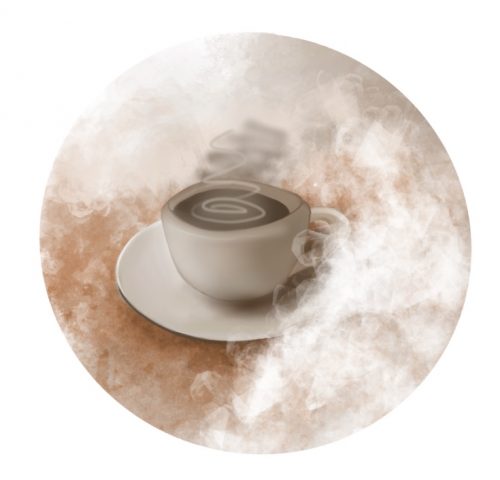Illustration courtesy of Anmei Little.
Most undergraduates love the sleep-fighting powers of coffee. For those of us who can’t take it black, sugar is a must. However, recent research from Ilan Shumilin, Christoph Allolio, and Daniel Harries at the Hebrew University of Jerusalem may make you question if adding sugar affects how coffee’s caffeine interacts with your body.
Caffeine is a hydrophobic—water-repelling—drug, so its molecules clump together in water, like penguins huddling together to avoid the cold. Compounds called hydrotropes can reduce clumping by surrounding the drug molecules. As the drug molecules spread out, they often function more efficiently.
Harries and the research team noticed that sugar, originally thought to function as a bitter taste-masker of caffeine, actually has a far more unique effect. According to their findings, sugars increase the water solubility and concentration of single caffeine molecules, while decreasing that of caffeine oligomers—multiple caffeine molecules joined together. This preferential interaction defines what is called a selective hydrotrope. “[Drug] aggregates don’t have the right physiological impact that you would want them to have. By adding a hydrotrope that is selective, you can pick out the species that really does the job,” Harries explained.
It is difficult to determine whether this alters how our bodies respond to coffee. The effectiveness of caffeine monomers compared to that of oligomers is not yet quantified. Additionally, the sugar itself has energy-boosting effects that have to be considered. Regardless of its end effect, the next time you sip on a latte, reflect on all the interesting interactions taking place in your cup.

